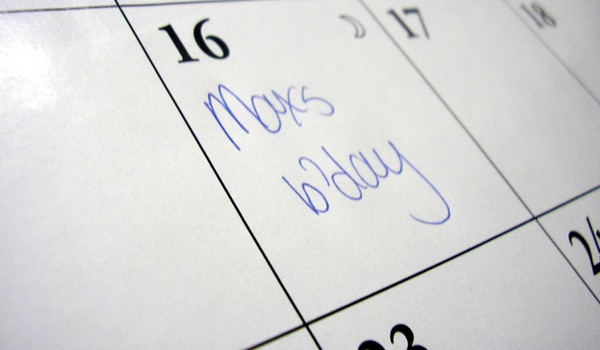
The calendar can be a tricky beast. It’s designed in a way that makes it appealing to use for time management, but it’s not best suited for that.
With that in mind, here are 3 things that you actually should put on your calendar in order to make things happen on a regular basis:
1. Date-Specific Appointments
David Allen explains in his seminal work, Getting Things Done, that the only thing that should appear on your calendar are date-specific appointments. That means things like dentist appointments, meetings, and anything that can only be attended to during that time. But that also means that you can make date-specific appointments with yourself that can act as tentpoles for you to conduct certain pieces of work.
I’ve actually started to refer to these more as “agreements” than “appointments” because agreements mean that much more to me. Rescheduling an appointment is something that can be done, but rescheduling an agreement seems more daunting and less viable. By using the term “agreement” (which acts as a trigger), I’m less likely to even think about altering what I’ve committed to with someone else…or even myself.
2. Tasks You Struggle With Completing Regularly
There are tasks that ultimately have to shift from your task manager to your calendar, and I’ve found that there’s only one big reason that needs to be done: you’re struggling with completing them on a regular basis.
Exercise is a big one for me. I initially scheduled exercise in my task manager and found that it wasn’t happening. Then I moved it to my calendar to be done on specific days, but not at specific times. That didn’t work, either (although it’s important to be a bit less specific when practicing “time chunking”). So I caved and scheduled exercise in for specific times of the day and, much like making a date-specific appointment with myself, it started to get done more regularly. At first it wasn’t happening all the time, but the more I reconciled with myself that I was “breaking an agreement” with myself, the regular routine of exercising on those scheduled days took hold.
3. Monthly Themes
Every time I look at my NeuYear Calendar, I see my Three Words for the year almost immediately. Then I see my monthly themes. These themes act as beacons for when I’m stuck on what I should be focusing on that month — the things that should ultimately guide my actions over those periods of time.
Monthly themes are key because they keep you aware of the bigger picture on those occasions when you get caught up in the minutia of the day-to-day. The monthly themes, which are actually only used for nine of the twelve months of the year, keep me attached to my larger goals and projects and help me make measured progress towards achieving them. So whether you use a wall calendar like the NeuYear Calendar or simply use a digital calendar (where you can create an event that lasts all day for every day of the month to represent your monthly theme), having a compass of that nature can really help you make the most of your energy, your time, and your calendar.
